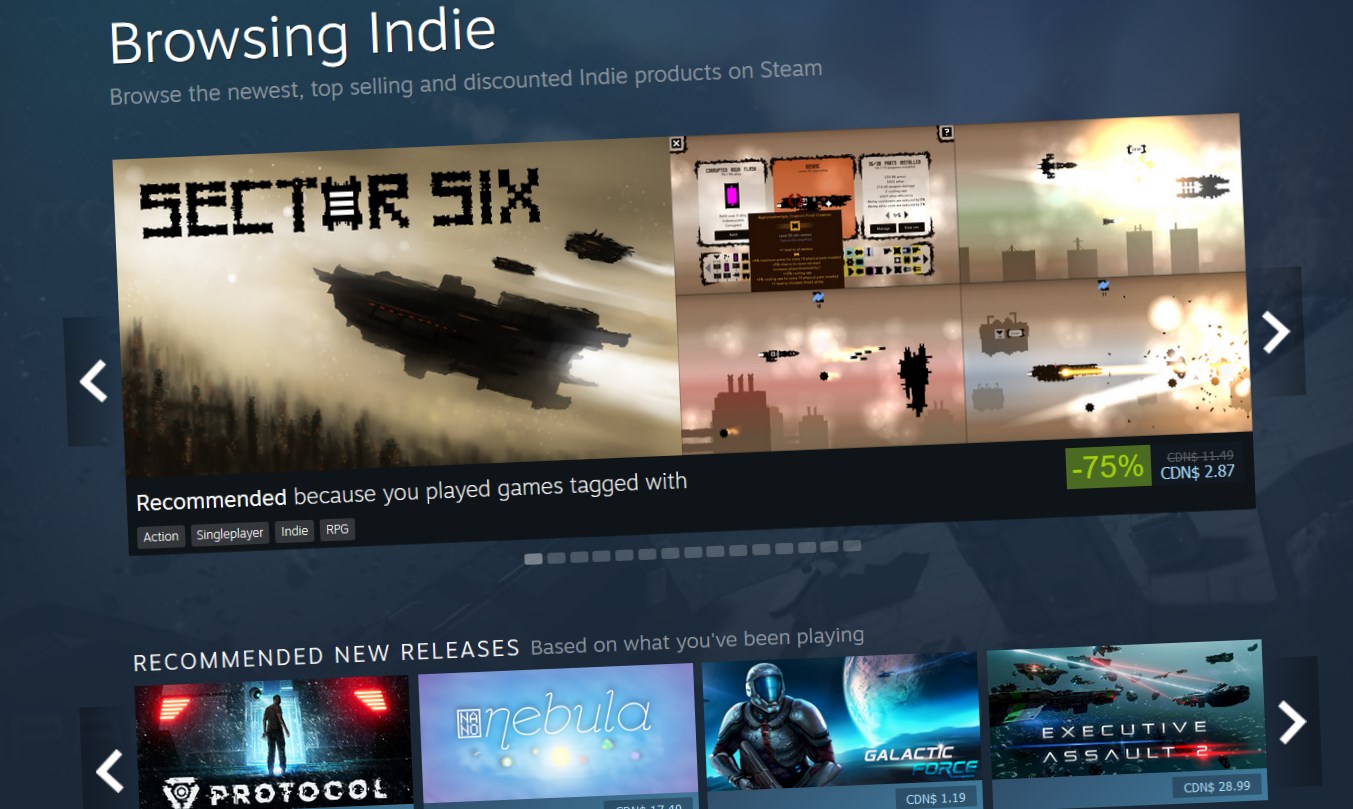Valve explains Steam Discovery bug that made indie games harder to find
An update to Steam's search function ended up having an effect that was not quite what Valve intended.

A post on a Steam developer forum that went up earlier this week detailed a bug, introduced in October, that many indie developers claimed caused a significant reduction in traffic to their store pages, and thus their sales. The problem was reportedly related to Steam's Discovery feature, which was recommending "large, popular games" over more relevant titles, and while the bug was apparently fixed quickly, the impact lingered: Dean Hall, for one, said on December 2 that Stationeers was only getting ten percent of the traffic that it used to.
In response to those complaints, Valve has posted a message in the Steamworks Development group (available to the public) explaining what happened.
"On October 5th, we deployed some code to Steam that changed the defaults for our search queries to factor in sales and wishlist activity more than before. This change was meant to fix an issue where customers would search for a game, but that game would be much lower in the search results than other less relevant games," Valve wrote.
"This change had the unintended side-effect of de-boosting tags in the “More Like This” section on a game's store page. What that meant was that instead of seeing products similar to the game, you saw games that shared just one tag in common, but were effectively the most popular games on Steam. This isn't how we wanted that feature to work."
Valve adjusted the algorithm on October 9 to "increase the boost on tag similarity," but "we still kept a part of the change that factored in sales and wishlist popularity." On October 30 it increased the boost further. But Valve also decided to experiment with a new algorithm over October 10-17: It was intended to more effectively connect users with games they'd be interested in, but "ended up showing fewer products to a subset of customers, which led to a decrease in overall impressions in that area."
"As a result, overall impressions and views for the 'More Like This' section did show a substantial decrease for about two weeks after the initial bug," Valve said. "But traffic recovered around October 19th, and has stabilized since."
That would seem to be contrary to statements from indie developers like Hall, Kingdoms and Castles developer Peter Angstadt, and Grey Alien Games owner Jake Birkett, who said on December 2 that "many indie games never got back to previous levels of discovery."
The biggest gaming news, reviews and hardware deals
Keep up to date with the most important stories and the best deals, as picked by the PC Gamer team.
Valve concluded by saying that its priority is matching games with players, regardless of developer, budget, or anything else. "The fact is, traffic is going to shift whenever we do this work; it may go up or it may go down for any individual product. However, not all impressions and views are equal," it wrote. "In the end, what matters is that we show customers games that they find interesting."
I've reached out to Valve for more information on the bug, and why some indie developers are saying their traffic hasn't recovered despite the October fix, and will update if I receive a reply.

Andy has been gaming on PCs from the very beginning, starting as a youngster with text adventures and primitive action games on a cassette-based TRS80. From there he graduated to the glory days of Sierra Online adventures and Microprose sims, ran a local BBS, learned how to build PCs, and developed a longstanding love of RPGs, immersive sims, and shooters. He began writing videogame news in 2007 for The Escapist and somehow managed to avoid getting fired until 2014, when he joined the storied ranks of PC Gamer. He covers all aspects of the industry, from new game announcements and patch notes to legal disputes, Twitch beefs, esports, and Henry Cavill. Lots of Henry Cavill.

